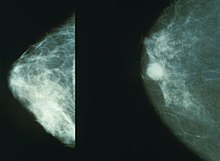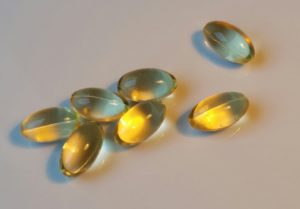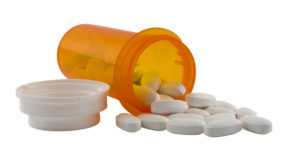
More worrisome news about high-fructose corn syrup. Researchers found that high fructose corn syrup actually speeds up and fuels the growth of cancer tumors in animals who already have cancer.
While this study was done in mice (with either breast cancer, melanoma, or cervical cancer), it is actually a scary finding because so many foods that Americans ingest daily contain high-fructose corn syrup. It is a sugar derived from corn starch and found in many foods: baked goods, soda, fast food, cereals, ice cream, etc. If you see it in an ingredient list, it means it is an ultra-processed food.
Bottom line: Read food ingredient lists and try to avoid eating foods with high-fructose corn syrup.
Excerpts from US Right To Know: High-fructose corn syrup fuels tumor growth in animals with cancer, a new study shows
High-fructose corn syrup, a sweetener commonly used in soda and ultra-processed foods, accelerates cancer tumor growth via the liver, according to research published last week [Dec. 4, 2024] in Nature.
High-fructose corn syrup (HFCS) is a sugar derived from corn starch. High fructose intake has been shown to contribute to the development of non-alcoholic fatty liver disease (NAFLD) and obesity, both of which are associated with systemic inflammation and altered lipid metabolism (the way the body processes fats). It has also been linked to diabetes, heart disease, and colorectal cancer. ...continue reading "Another Reason to Avoid High-Fructose Corn Syrup"

 Pesticides are once again in the news as being linked to cancer. A recent
Pesticides are once again in the news as being linked to cancer. A recent  Earlier studies also found a link with some of the pesticides and prostate cancer, including 2,4-D. But this study found a link with 19 more.
Earlier studies also found a link with some of the pesticides and prostate cancer, including 2,4-D. But this study found a link with 19 more.


 Recently, another well done study of vitamin D and cancer resulted in disappointing results. Vitamin D supplements showed no benefit in persons with metastatic colorectal cancer (CRC). It did not result in a difference in overall survival outcomes.
Recently, another well done study of vitamin D and cancer resulted in disappointing results. Vitamin D supplements showed no benefit in persons with metastatic colorectal cancer (CRC). It did not result in a difference in overall survival outcomes. The bacteria Fusobacterium nucleatum is prevalent in periodontal disease (gum disease), but also in some chronic diseases and cancers, such as colorectal cancer. The bacteria F. nucleatum is normally found in the mouth (oral) microbiome, and its numbers increase as periodontal disease inflammation increases.
The bacteria Fusobacterium nucleatum is prevalent in periodontal disease (gum disease), but also in some chronic diseases and cancers, such as colorectal cancer. The bacteria F. nucleatum is normally found in the mouth (oral) microbiome, and its numbers increase as periodontal disease inflammation increases. The microbes living on and in us (the human microbiome or microbiota) play a big role in our health. Certain microbes are even implicated in cancer development and progression. Thus, it shouldn't come as a surprise that new
The microbes living on and in us (the human microbiome or microbiota) play a big role in our health. Certain microbes are even implicated in cancer development and progression. Thus, it shouldn't come as a surprise that new  The incidence of both intestinal bowel diseases (IBD) and colorectal cancer is rapidly increasing in developed countries (e.g., US, Canada, Europe). There are many theories over why this is occurring, with most researchers thinking a person's diet plays a role. A big suspect in promoting IBD and colorectal cancer is the Western diet, which has lots of ultra-processed foods and is also low in fiber.
The incidence of both intestinal bowel diseases (IBD) and colorectal cancer is rapidly increasing in developed countries (e.g., US, Canada, Europe). There are many theories over why this is occurring, with most researchers thinking a person's diet plays a role. A big suspect in promoting IBD and colorectal cancer is the Western diet, which has lots of ultra-processed foods and is also low in fiber. Bottom line:
Bottom line: Studies on aspirin keep coming. For decades, studies found that persons taking aspirin frequently have a lowered risk of developing colorectal (colon) cancer, and that they are less likely to die if they do develop colorectal cancer. A recent
Studies on aspirin keep coming. For decades, studies found that persons taking aspirin frequently have a lowered risk of developing colorectal (colon) cancer, and that they are less likely to die if they do develop colorectal cancer. A recent